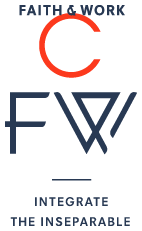
Blog
Entrepreneur-
ship & Innovation
Initiative
By: Bethany Jenkins
Someone with a passion for justice might pursue law. Another with an interest for communications might become a journalist. Yet another might become an investment banker out of a love for generosity. These passions, interests, and loves, however, can become disappointments when we go to work and discover that laws can corrupt, journalism can manipulate, and business can exploit. How can we respond to the brokenness that we see in the fields that we love?
One response is to stay where we are and try to effect change from within, working toward transparency at our firm, honesty at our paper, or equity at our bank. Another response, though, is to start something new―a new firm, a new magazine, or a new bank. Instead of swimming upstream and trying to retrofit gospel-centered principles as an afterthought, we can create new organizations that implement redemptive ethics from the outset.
This is the vision of the Entrepreneurship and Innovation Initiative (Ei) of the Center for Faith & Work at Redeemer Presbyterian Church in Manhattan. Ei comes alongside people who have ideas for new ventures. It helps entrepreneurs think through how they can implement policies that glorify God and contribute to human flourishing. Since being an entrepreneur can be lonely, Ei also wants to create a community that shares in risks and rewards among those who respond to the call of working toward a vision of gospel-centered cultural engagement.
Through its annual Business Plan Competition (BPC), Ei invites entrepreneurs in three different sectors―for-profit, non-profit, and the arts―to catch their vision. Over the course of nine months, entrepreneurs who choose to submit business plans go from concept to investment. At the end of that time, three winners―one from each sector―are chosen to receive seed financing, additional advisory support, and a spotlight at the annual Ei Forum in New York City. Since Ei’s beginning in 2007, over 251 entrants have been coached, and CFW has provided financing totaling $236,000―through foundations and individuals―to its 20 winners and 2 runners-up.
This year, forty-five ventures submitted their business plans, and twenty semi-finalists were selected. A committee further narrowed the finalists to eleven―six for-profits, three non-profits, and two arts initiatives. On Friday, March 14, each finalist had six minutes to present their venture to an audience that included friends, investors, and judges. Ventures were diverse―ranging from an design platform that provides templates for postcards, bulletins, and newsletters (Triune) to a donor platform that makes it easier for non-profits to identify the full giving potential of their donors (Better World Collective).
The panel of judges, which included practitioners like CFW founder Katherine Alsdorf, consultant and author Andrew Sobel, and Praxis founder Dave Blanchard, seemed to focus on two main issues. The first was whether the venture addressed a real problem in the world. In most cases, especially when data and research were presented, the answer was yes. In other cases, however, it was less than clear. For example, one venture was an app hoping to end the back-and-forth email chains that often happen when friends are planning events. But the judges had questions. One asked, “What’s really broken?” Another said, “Not only are the current systems not broken, they’re actually desirable. The back-and-forth helps create consensus and narrow choices.”
If the venture did address a real problem, the second issue was whether the proposed solution could be successful and efficient. Judges asked questions about revenue models, methods of measurement, customer acquisition costs, capital raised, and business risks. Ones that included new websites dependent on user engagement were usually asked why a customer or client would return to the new platform. Others were asked about the training and experience of their leadership. Some were asked questions about long-term sustainability both in terms of human capital and financial capital.
On Friday, May 2, three winners were announced―a for-profit network of eye care facilities in China that wants to serve the rich to treat the poor (ChinaVision), a non-profit that trains minority students to launch startup ventures and instill biblical principles of leadership (Student Dream), and an arts venture that creates and oversees an array of children’s media with a particular emphasis on experiential learning (Mud Puddle Productions).
Next weekend (May 30-31), these three ventures will present their visions at the Center for Faith & Work’s eighth annual Ei Forum, which is taking place at the Center for Social Innovation in New York City. This year’s theme is “Disruption” – an appropriate choice for entrepreneurs seeking to start new things and change their industries. As entrepreneurs “disrupt” existing systems, our culture will change. As Dave Blanchard has said, “We believe the future of culture depends largely on the worldview of the next generation of entrepreneurs.” When these entrepreneurs are driven by the gospel, they have the opportunity of being “winsome cultural witnesses” as their ventures are demonstrated, lived-out apologetics.
Bethany Jenkins is the founder of The Park Forum and director of Every Square Inch, the faith and work initiative at the Gospel Coalition.
This piece was originally published in Fieldnotes Magazine.
